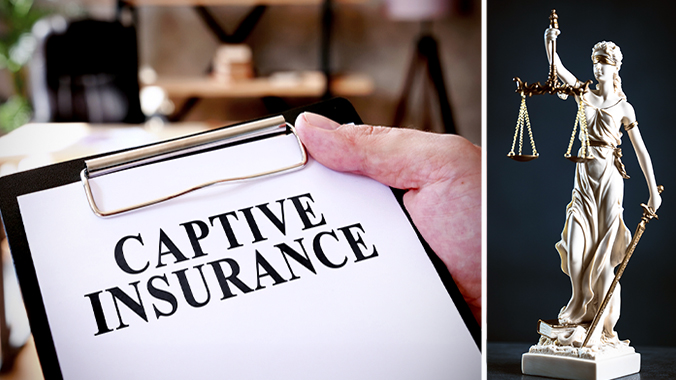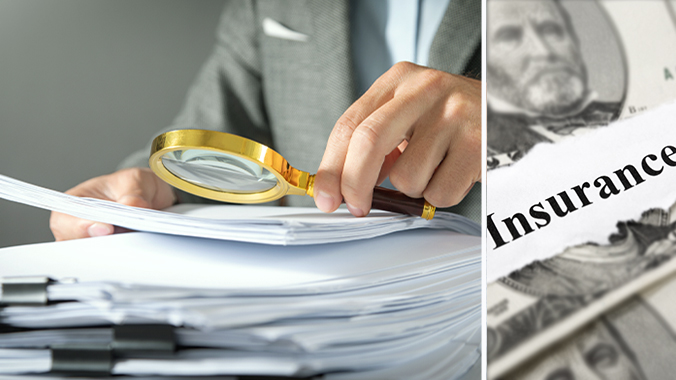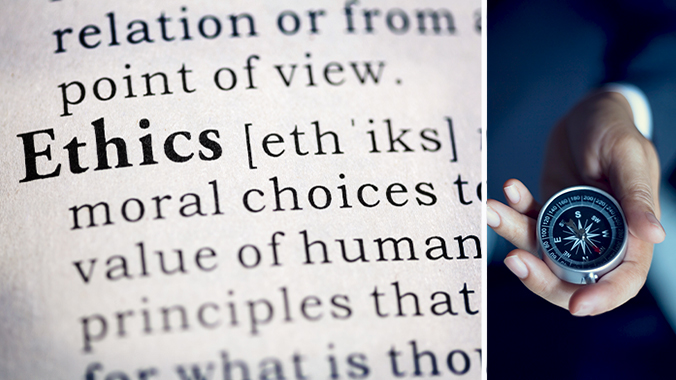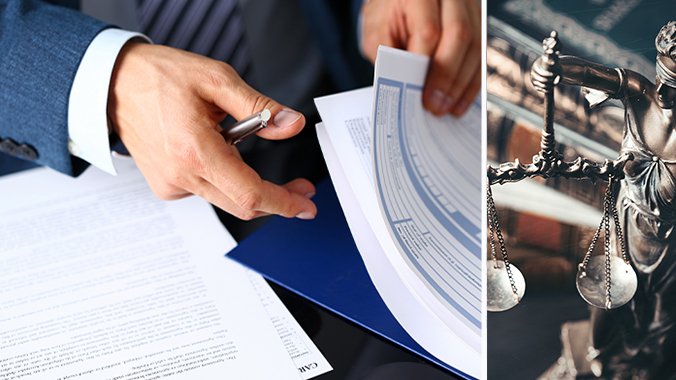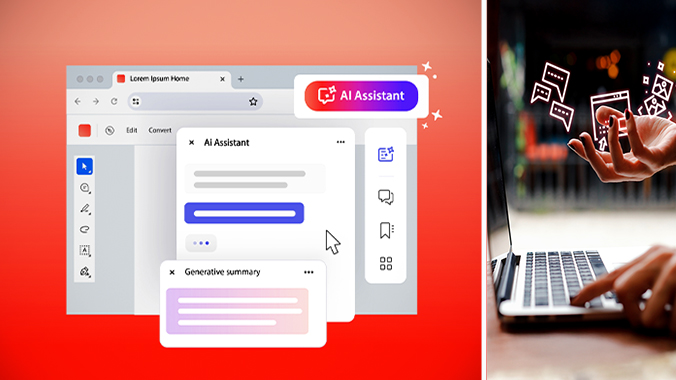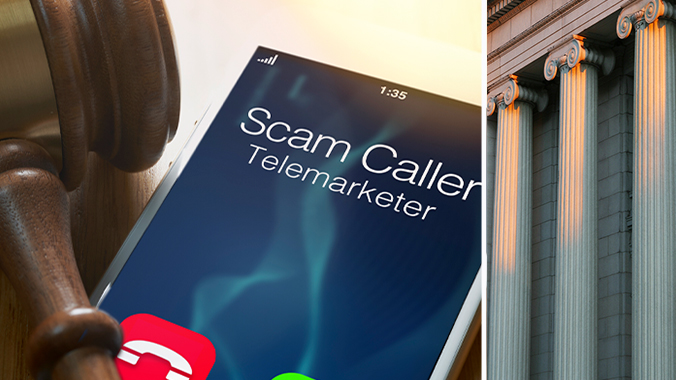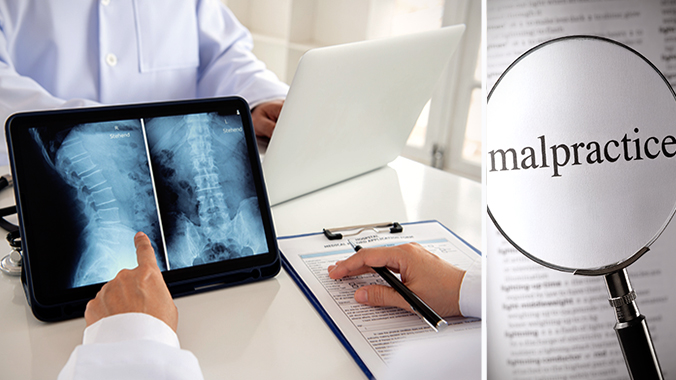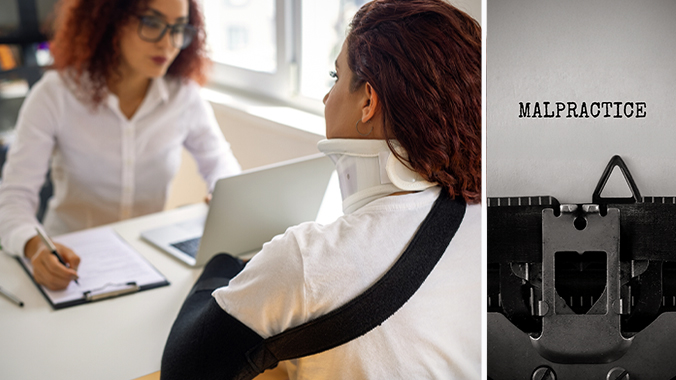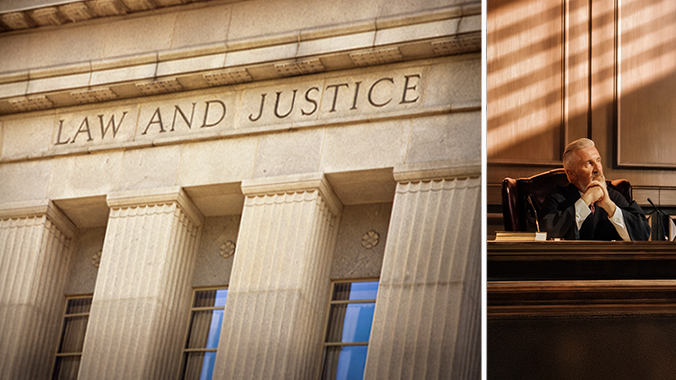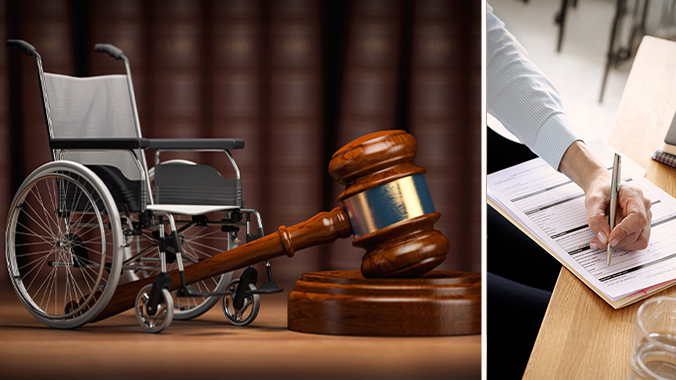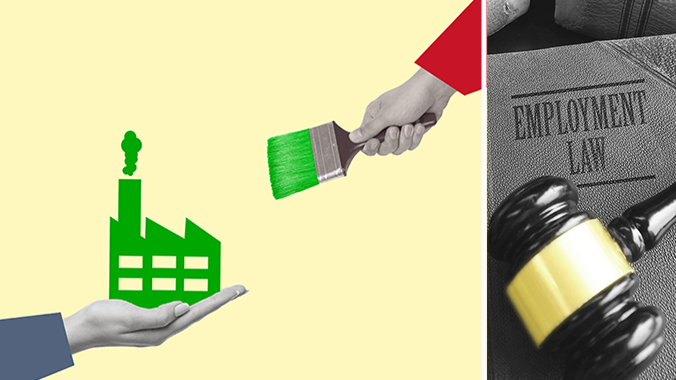Federal Discovery Under Fire: Ethical Duties and How to Avoid Spoliation Sanctions

Jeanne is a trial lawyer, mediator, and legal ethics consultant with 27 years of experience in civil litigation. Since 2017, she has focused her practice on helping lawyers and law firms manage complex ethics challenges that arise during litigation. She defends Texas lawyers before the disciplinary authority and advises attorneys on professional responsibility questions, including privilege, confidentiality, reporting misconduct, and withdrawal from representation, and she serves as an expert witness on ethics issues.

Richard is a Board-Certified Civil Trial Lawyer with over forty years of experience representing businesses and individuals in litigation, arbitration, and mediation. Richard frequently writes, speaks and presents webinars on ADA, FHA and professional responsibility issues among other topics. He has been interviewed by The Economist and Forbes, among other publications, on issues related to ADA and FHA litigation.
Live Video-Broadcast: November 6, 2025
1 hour CLE
Tuition: $395.00
Co-Sponsored by myLawCLE
Get this course, plus over 1,000+ of live webinars.
Learn More
All-Access Pass
Free access to all CLE programs w/active subscription. Annual subscription only $395/yr.
Training 5 or more people?
Sign-up for a law firm subscription plan and each attorney in the firm receives free access to all CLE Programs
Program Summary
Discovery remains one of the most challenging and risk-laden aspects of federal practice. Our clients hate the work and expense of responding to discovery requests because it seems to be the opposite of working to win the case. We like sending requests but hate the tedious business of writing the requests and the even more tedious business of responding. But like many things that are not that much fun, sending and responding to discovery requests is important. Missteps in scope, preservation, privilege logging, or objections can expose lawyers to sanctions, undermine client relationships, and raise serious ethical concerns. This 60-minute CLE provides trial lawyers, in-house counsel, and federal practitioners with the tools to navigate discovery obligations under both the ABA Model Rules of Professional Conduct and the Federal Rules of Civil Procedure.
Special attention will be given to preservation letters and litigation holds, including the duty to preserve client and third-party records once litigation is reasonably anticipated, and the consequences of spoliation under Rule 37(e).
Key topics to be discussed:
- Identify ethical duties under the ABA Model Rules that apply to discovery, including competence (including technology), fairness, confidentiality, and supervision of staff
- Apply the Federal Rules of Civil Procedure, particularly Rules 26, 34, and 37, to avoid sanctions, improper objections, and abusive practices
- Develop practical strategies for efficient, defensible discovery, including privilege logs and handling Zoom transcripts/AI outputs
- Recognize and resolve common pitfalls through hypotheticals involving inadvertent disclosure, spoliation, and overbroad requests
This course is co-sponsored with myLawCLE.
Date / Time: November 6, 2025
- 2:00 pm – 3:00 pm Eastern
- 1:00 pm – 2:00 pm Central
- 12:00 pm – 1:00 pm Mountain
- 11:00 am – 12:00 pm Pacific
![]() Closed-captioning available
Closed-captioning available
Speakers
 Jeanne M. Huey | Hunt Huey PLLC
Jeanne M. Huey | Hunt Huey PLLC
Jeanne is a trial lawyer, mediator, and legal ethics consultant with 27 years of experience in civil litigation. Since 2017, she has focused her practice on helping lawyers and law firms manage complex ethics challenges that arise during litigation. Jeanne frequently serves as special counsel in disputes in litigation involving motions to disqualify, motions to withdraw, and sanctions related to alleged misconduct. She defends Texas lawyers before the disciplinary authority and advises attorneys on professional responsibility questions, including privilege, confidentiality, reporting misconduct, and withdrawal from representation, and she serves as an expert witness on ethics issues.
Since 2023 Jeanne has served as Co-Chair of the ABA Litigation Section’s Ethics and Professionalism Committee. She has been recognized as a Super Lawyer for ten consecutive years and is also a sought-after CLE presenter, author, and podcast guest on ethics and professionalism. She blogs at www.legalethicstoday.com.
 Richard Hunt | Hunt Huey PLLC
Richard Hunt | Hunt Huey PLLC
Richard is a Board-Certified Civil Trial Lawyer with over forty years of experience representing businesses and individuals in litigation, arbitration, and mediation. His practice is focused on the disability rights provisions of the Fair Housing Act and the Americans with Disabilities Act. He has served as an adjunct professor teaching Disability Law at the Dedman School of Law at Southern Methodist University and has served on the Examination Committee for Civil Trial Certification for the Texas Board of Legal Specialization and as an adjunct professor of trial advocacy at Texas Wesleyan School of Law. Richard is the author of Accessibility Defense (accessdefense.com), a blog for businesses that focuses on avoiding and defending lawsuits brought under the Americans with Disabilities Act and Fair Housing Act. Richard frequently writes, speaks and presents webinars on ADA, FHA and professional responsibility issues among other topics. He has been interviewed by The Economist and Forbes, among other publications, on issues related to ADA and FHA litigation.
Agenda
I. Learning objectives | 2:00pm – 2:05pm
II. Rules to be discussed | 2:05pm – 2:15pm
- FRCP core discovery duties
- Rule 26(b)(1): Scope, proportionality, relevance
- Rule 26(b)(5): Privilege logs, sufficient detail, categorical logs, note that “information” includes Zoom transcripts, Teams chats, AI-generated notes, text messages. Duty to advise clients before including counsel on calls about the scope of the privilege and waiver by inclusion of individuals outside control group
- Rule 26(f): Discovery conference obligations, cooperation on ESI, privilege, claw back agreements
- Rule 34: Request/production formats (Native vs. PDF, Metadata)
- Rule 37: Sanctions for spoliation, failure to cooperate, boilerplate objections
- Case trend: Fischer v. Forrest (boilerplate objections condemned)
- ABA Model Rules duties and ethics opinions that implicate discovery
- Rule 1.1: Competence (including comment 8 on tech)
- Rule 1.4: Communication with clients, discovery annoys clients (except the most sophisticated). 1.4(a)(2) and (5) require that we help our clients understand their and our obligations and why this annoyance has to be borne if not enjoyed
- Rule 3.4: Fairness to Opposing Party and Counsel (no obstruction, no spoliation)
- Rule 4.4: Respect for Rights of Third Persons (limits on burdensome discovery)
- Rule 1.6: Confidentiality (inadvertent disclosure, protective orders, claw back, use of GAI)
- Rules 5.1 & 5.3: Supervision (AI vendors, contract attorneys, review platforms)
- ABA Formal Ethics Opinion 512 on GAI
III. Key discovery tools and strategies | 2:15pm – 2:30pm
- Preservation letters, litigation holds, and the independent obligation to preserve evidence (i.e., how we advise our clients before litigation begins)
- Triggered once litigation is reasonably anticipated
- Sent to client + all custodians + third parties/vendors with documents
- Must cover email, ESI, personal devices, cloud storage
- Update and reissue as new custodians emerge
- Tie to ethics
- Rule 1.1: Comment 8 (competence to identify data sources)
- Rule 3.4 (spoliation = unfairness)
- Tie to FRCP
- Rule 26(f): Conference on preservation
- Rule 37(e): Sanctions for Failure to Preserve ESI
- Practical strategies: After litigation commences, effective discovery and discovery responses will meet both FRCP and ethical duties
- The very first thing: Know your case. Long before you send or receive the first discovery request you should have identified and at least begun identifying the documents that will be relevant and their location, the names of witnesses, and similar items. You need this for an appropriate response to mandatory disclosures and because you can’t fulfill your duty to your client without knowing these things. DO NOT rely on supplementation to avoid doing the work up front
- Common practices to avoid in drafting requests
- Use of expansive form definitions to avoid thinking about what might exist and what you really want. No “relates” or “any and all” or “singular includes plural” etc
- Overbroad requests that cannot be tied to specific needs/relevance
- Any use of form requests without carefully considering whether the request is appropriate for the subject matter and discovery needs
- Common practices to avoid in responding to requests (by the way, we know you live in the real world, but you can aspire to perfection)
- Boilerplate objections
- Reliance on later supplementation to avoid doing the work today
IV. Privilege log and AI issues | 2:30pm – 2:45pm
- Privilege logs best practices
- Cover ESI + AI outputs (Zoom transcripts, Teams/Slack, AI summaries, draft memos)
- Categorical logs were feasible with agreement. But note that Rule 26(b)(5) allows categorical logs without opposing party agreement. For example, exclude all communications whose only participants are counsel and client (or well-defined client control group). Only requirement is that manner “will enable other parties to assess the claim”
- Use of technology: AI-assisted review requires lawyer supervision and, depending on your state rules on confidentiality, may require informed client consent before any confidential information about the case is entered into a self-learning GAI tool
- AI-assisted review supplements the attorney’s knowledge and judgment, it is not a substitute or a shortcut for that knowledge and judgment
- Ask yourself this question: Based on my knowledge of how the clients (individuals or businesses) operate, what should I expect to find? If you don’t find it, there may be a problem
- Cooperation as strategy: Judges expect candor, efficiency, proportionality and life is hard enough without fighting battles that are unlikely to change the strength or weakness of your case. Don’t fight for the sake of fighting. It costs your client more money for very little to no benefit. If you can’t justify the expense to your client with respect to the information you will receive and how it will aid you in their case, it is probably not worth it
- In-house perspective: Cost management + defensibility = credibility
V. Hypotheticals | 2:45pm – 2:55pm
- The Zoom transcript surprise
- Inadvertent production of client strategy meeting transcript auto generated by Zoom and placed in the client “docs” file
- Issues: Competence, confidentiality, privilege log, claw back, 502(d) orders
- Discussion prompts: Log or not? steps after disclosure?
- The boilerplate objection & AI review
- Overbroad requests + generic objections
- AI vendor review raises supervision/privilege/confidentiality questions
- Issues: Rule 3.4, Rule 26(b)(1), Rules 5.1/5.3, privilege logs, Rule 37
- Discussion prompts: Are boilerplate objections ever sufficient? confidential client information fed into GAI without client consent (Opinion 512)?
- Overbroad requests + generic objections
- The vanishing text messages (spoliation letter twist)
- Employees use personal phones → texts lost despite litigation hold
- Opposing counsel’s spoliation letter also sent to third parties
- Issues: Rule 1.1 (Competence), Rule 3.4 (Fairness), Rule 26(f), Rule 37(e)
- Discussion prompts: Duty to preserve personal devices? Duty re: Third parties? sanctions risk?
VI. Key takeaways and closing | 2:55pm – 3:00pm
- Competence + candor + communication = credibility
- Proportionality is your ally
- Efficiency is ethical
- Boilerplate objections are dead
- Privilege logs must evolve to cover new forms of data (Zoom, Teams, AI)
- Preservation letters should go wide: Clients, employees, vendors, affiliates
Credits
Alaska
Approved for CLE Credits
1 Ethics
Alabama
Approved for CLE Credits
1 Ethics
Arkansas
Approved for CLE Credits
1 Ethics
Arizona
Approved for CLE Credits
1 Professional Responsibility/Ethics
California
Approved for CLE Credits
1 Ethics
Colorado
Pending CLE Approval
1 Ethics / Professionalism
Connecticut
Approved for CLE Credits
1 Ethics / Professionalism
District of Columbia
No MCLE Required
1 CLE Hour(s)
Delaware
Pending CLE Approval
1 Enhanced Ethics
Florida
Approved via Attorney Submission
1 Ethics Hours
Georgia
Approved for CLE Credits
1 Ethics
Hawaii
Approved for CLE Credits
1.2 Ethics or Professional Responsibility Education
Iowa
Pending CLE Approval
1 Ethics
Idaho
Pending CLE Approval
1 Ethics / Professionalism
Illinois
Approved for CLE Credits
1 Ethics, Civility, Professionalism
Indiana
Approved for CLE Credits
1 Ethics
Kansas
Pending CLE Approval
1 Ethics / Professionalism
Kentucky
Pending CLE Approval
1 Ethics
Louisiana
Pending CLE Approval
1 Ethics
Massachusetts
No MCLE Required
1 CLE Hour(s)
Maryland
No MCLE Required
1 CLE Hour(s)
Maine
Pending CLE Approval
1 Ethics / Professionalism
Michigan
No MCLE Required
1 CLE Hour(s)
Minnesota
Approved for Self-Study Credits
1 Ethics
Missouri
Approved for CLE Credits
1.2 Ethics
Mississippi
Pending CLE Approval
1 Ethics
Montana
Pending CLE Approval
1 Professional Fitness and Integrity
North Carolina
Pending CLE Approval
1 Ethics
North Dakota
Approved for CLE Credits
1 Ethics
Nebraska
Pending CLE Approval
1 Professional Responsibility
New Hampshire
Approved for CLE Credits
60 Ethics / Professionalism minutes
New Jersey
Approved for CLE Credits
1.2 Ethics / Professionalism
New Mexico
Approved for CLE Credits
1 Ethics / Professionalism
Nevada
Approved for CLE Credits
1 Ethics / Professionalism
New York
Approved for CLE Credits
1.2 Ethics / Professionalism
Ohio
Approved for CLE Credits
1 Professional Conduct
Oklahoma
Pending CLE Approval
1 Ethics / Professionalism
Oregon
Pending CLE Approval
1 Ethics
Pennsylvania
Approved for CLE Credits
1 Ethics / Professionalism
Rhode Island
Pending CLE Approval
1 Ethics / Professionalism
South Carolina
Pending CLE Approval
1 Ethics / Professionalism
South Dakota
No MCLE Required
1 CLE Hour(s)
Tennessee
Approved for CLE Credits
1 Dual
Texas
Approved for CLE Credits
1 Ethics / Professionalism
Utah
Pending CLE Approval
1 Ethics / Professionalism
Virginia
Not Eligible
1 Ethics / Professionalism Hours
Vermont
Approved for CLE Credits
1 Ethics
Washington
Approved via Attorney Submission
1 Ethics Hours
Wisconsin
Pending CLE Approval
1 Ethics
West Virginia
Pending CLE Approval
1.2 Ethics / Professionalism
Wyoming
Pending CLE Approval
1 Ethics / Professionalism
More CLE Webinars
Trending CLE Webinars

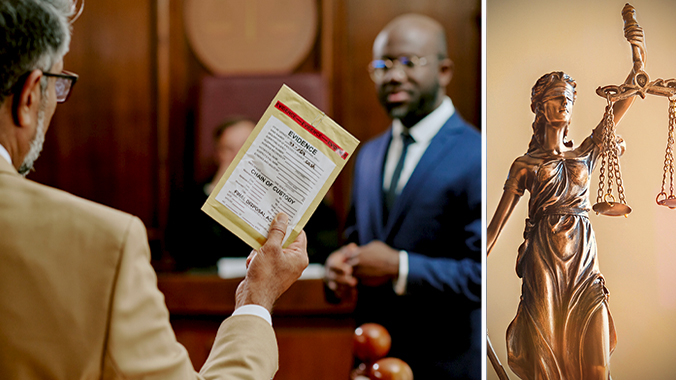







Upcoming CLE Webinars




















